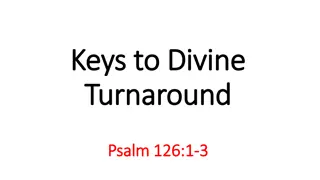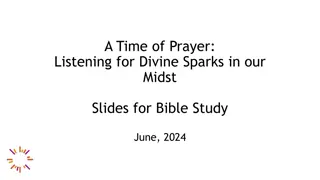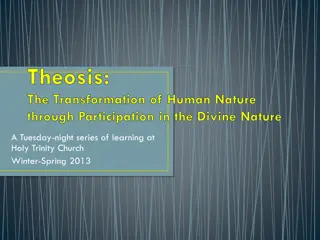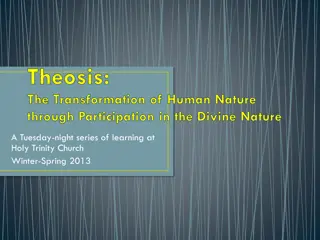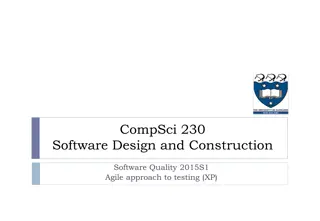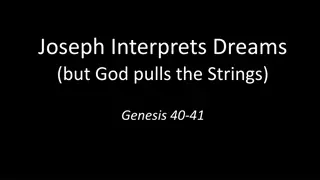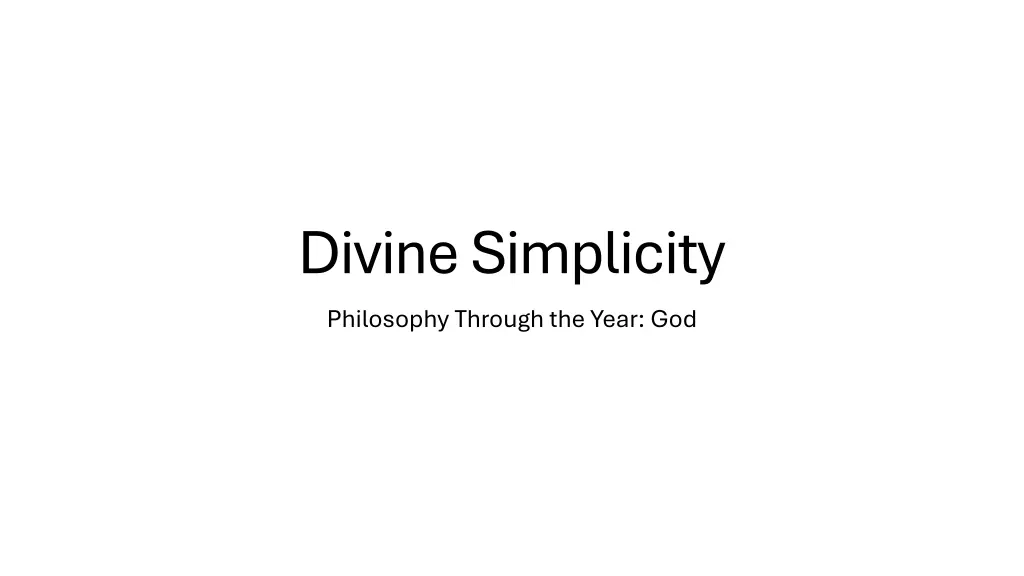
Understanding Divine Simplicity Philosophy Across the Years
Explore the profound concept of divine simplicity in philosophy, as articulated through the views of Anselm. Dive into the nature of God, the denial of distinction, and the implications of these ideas on attributes such as wisdom, goodness, and eternity.
Download Presentation

Please find below an Image/Link to download the presentation.
The content on the website is provided AS IS for your information and personal use only. It may not be sold, licensed, or shared on other websites without obtaining consent from the author. If you encounter any issues during the download, it is possible that the publisher has removed the file from their server.
You are allowed to download the files provided on this website for personal or commercial use, subject to the condition that they are used lawfully. All files are the property of their respective owners.
The content on the website is provided AS IS for your information and personal use only. It may not be sold, licensed, or shared on other websites without obtaining consent from the author.
E N D
Presentation Transcript
Divine Simplicity Philosophy Through the Year: God
Doctrine of divine simplicity But, surely, whatever You are You are through no other than through Yourself. Therefore, You are the life by which You live, the wisdom by which You are wise, the goodness by which You are good both to those who are good and to those who are evil, and similarly for similar [attributes]. (Anselm, Prosologion, Book XII) What are You? What shall my heart understand You to be? Surely, You are life, wisdom, truth, goodness, blessedness, eternity You are every true good. These are many things; and my limited understanding cannot in a single view behold so many at one time in order to delight in all together. How is it, then, O Lord, that You are all these things? Are they Your parts, or, instead, is each one of them the whole of what You are? For whatever is composed of parts is not absolutely one but is in a way many and is different from itself and can be divided actually or conceivably (intellectu). But these [consequences] are foreign to You, than whom nothing better can be thought. Hence, there are no parts in You, O Lord. Nor are You more than one thing. Rather, You are something so one and the same with Yourself that in no respect are You dissimilar to Yourself. Indeed, You are Oneness itself, divisible in no respect (nullointellectu). Therefore, life and wisdom and the other [characteristics] are not parts of You but are all one thing; and each one of them is the whole of what You are and the whole of what all the others are. Thus, since neither You nor the eternity which You are has any parts, nowhere and never is there a part of You or of Your eternity; rather, You exist everywhere as a whole, and Your eternity exists always as a whole. (Anselm, Prosologion, Book XVIII)
Doctrine of divine simplicity What does it really mean? What does the denial of distinction in God amount to? 1. 1. No temporal or spatial parts, because God is not temporal or spatial. No temporal or spatial parts, because God is not temporal or spatial. So, no distinguishing between this part and that part; or between God now and God later. 2. 2. No intrinsic accidental properties; No intrinsic accidental properties; God does not have ANY intrinsic accidental properties, only intrinsic essential properties (like numbers everything that can be said of a number itself is essential to it). [But no being at all is exempt from extrinsic accidental properties, because I can be thinking about the number 3 in Morocco, and some being, x, believes God to be made of jam: this has no bearing on the claim that God is unchanging, or perfect, or simple] 3. 3. Whatever can be intrinsically attributed to God must be identical with God, even if the sense of the Whatever can be intrinsically attributed to God must be identical with God, even if the sense of the attributions may be distinct. attributions may be distinct. So, e.g. power does not have the same meaning as goodness , even though power and goodness are one in God. This is like saying that the morning star is the same as the evening star, even though the two phrases have different meanings; or, that the summit of the north slope of a mountain is identical with the summit of the south slope.
Doctrine of divine simplicity Advantages: Ancient assumption that unity is a perfection: a perfect being must transcend any conceivable multiplicity ; Avoid problem implied in Euthyphro dilemma (i.e. of regression to forms); not so much God is good as God is goodness , or God is the goodness whereby God is good . Supports cosmological argument: if God were not simple, then God s existence would require explanation; derives from the same considerations that lead people to suppose that there must be a being whose existence is self-explanatory. Supports idea of absolute distinction between creator and creatures: all things are composite; God is not.
Doctrine of divine simplicity Problems?


